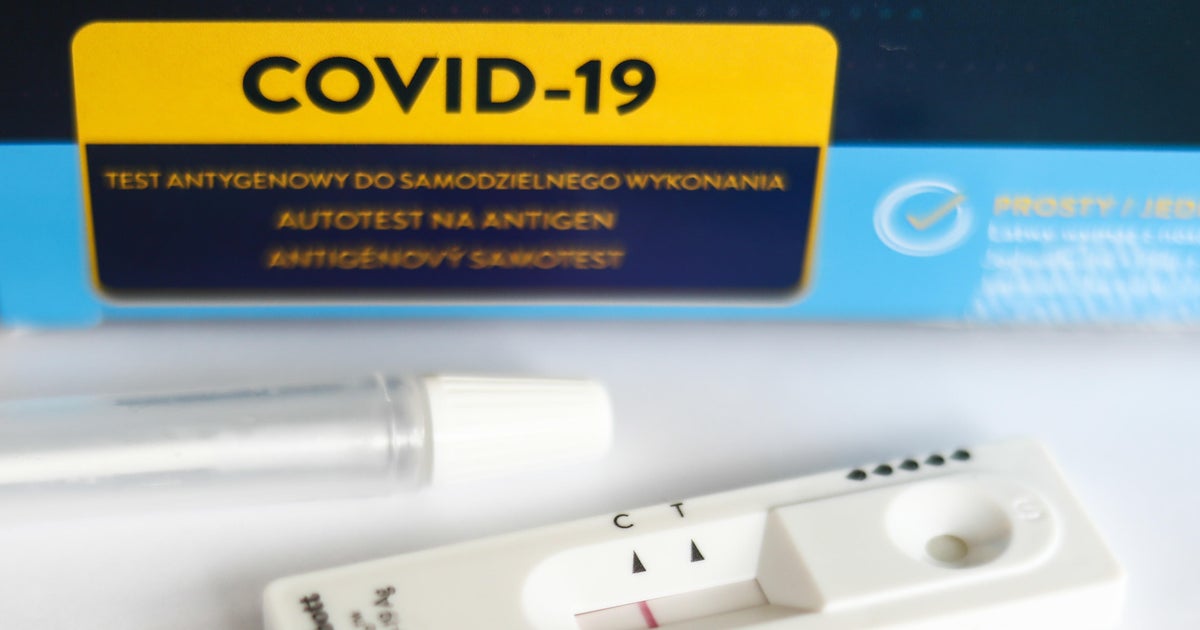CLEVELAND, Ohio — Last fall, all it took to get a COVID-19 vaccine was rolling up your sleeve. This year, pharmacies in Ohio and elsewhere will first ask if you’re 65 or older, or have underlying medical conditions putting you at risk for a severe case of the respiratory illness.
That’s because the U.S. Food and Drug Administration has restricted its recommendations for who should get the updated COVID-19 shot this fall.
Under the Trump administration’s new rules, the vaccine is only approved for adults ages 65 and up, and for all people six months and up who have one or more risk factors for severe COVID-19, which include cancer, stroke, chronic heart, liver, kidney and lung disease; cystic fibrosis, dementia, diabetes and having a weakened immune system.
The changes have prompted questions about whether younger people and those without underlying health conditions can get the vaccine, if they need a prescription to get one, and if they need to pay out-of-pocket for shots that were previously covered by health insurance.
The 2025 guidance is a departure from last year, when the FDA approved COVID-19 vaccines for nearly everyone.
Adding to the confusion, this year’s recommendations could change again after the CDC weighs in later this week.
But for now, almost everyone in Northeast Ohio who wants to be immunized should find it easy to get a shot, pharmacy representatives told cleveland.com. One exception are patients who use CVS, which has imposed new requirements in response to the FDA’s guidance.
The new recommendations have added similar hurdles to vaccination in other parts of the country. Major pharmacy chains have halted vaccinations altogether in some regions, although not in Ohio, according to press reports.
“If you’ve been used to the idea of just pop in at your local pharmacy and get the shot, you might face some additional steps this year,” said Louise Norris, health policy analyst for the a consumer information website healthinsurance.org.
The FDA’s new barriers could mean that the much smaller pool of Americans eligible for a shot — formulated to match the viral strains expected to be circulating this winter — could shrink further if people are turned off by the confusion.
Northeast Ohio pharmacies
Many local drugstores are not requiring prescriptions for the COVID-19 vaccine, or requiring patients who fall within the FDA guidelines to show proof of a medical condition in order to get the COVID-19 vaccine, representatives from Walgreens and Discount Drug Mart said.
People who fall outside of the FDA guidelines — those under 65 or without underlying health conditions — are asked to speak to a pharmacist at most locations.
At Ohio CVS locations, prescriptions are required for those under 65 who don’t declare an underlying condition, the company said. CVS customers also are asked to confirm they are eligible for the vaccine when they book an appointment or while filling out a health screening form, the company said.
At Discount Drug Mart, customers under 65 will need to explain why they want a COVID-19 vaccine shot, said Michele Golob, director of clinical services for Discount Drug Mart.
Caring for an immunocompromised person or planning to travel are among the reasons why a younger, healthy person might want to be immunized, she said.
“Very rarely” would someone be denied the vaccine at Drug Mart, Golob said.
Potential changes on the way
Several national physician groups — such as the American Academy of Family Physicians, American Academy of Pediatrics and the American College of Obstetricians and Gynecologists — already have broken with the FDA’s guidance and put out their own recommendations.
Meanwhile, the federal government’s recommendations about who should get the COVID-19 vaccine could tighten again after the CDC’s vaccine advisers hold a scheduled two-day meeting on Thursday and Friday.
The Advisory Committee on Immunization Practices will likely weigh whether to tailor its COVID-19 shot recommendations to fit the FDA’s mandate, or further narrow who can access the vaccine, health policy experts said.
Health and Human Services Secretary Robert F. Kennedy Jr., a vaccine skeptic, announced on Monday the appointment of five new members of the committee, which includes Catherine M. Stein, an epidemiologist and Case Western Reserve University professor in the Department of Population & Quantitative Health.
The changes come just as the nation enters the winter respiratory illness season. While COVID-19 is no longer a national public health emergency, it leads to illness, hospitalization and death for many in the United States each year. Between September 2024 and this month, as many as 60,000 Americans have died from the respiratory virus, the CDC estimates.
Uptake of the shot has been declining for years, Norris said, even when it was widely available. As of August 2024, about 30% of Americans 65 and older on Medicare were immunized, according to federal data.
Now, confusion over the changes in may lead to people not getting the COVID-19 vaccine even if they are eligible, health experts said.
Some people who used to swing by their local drugstore to get a vaccine will take the extra step of getting a prescription and returning, Norris said.
“Other people will just say, ‘Forget it. It’s too much work. I’m just not going to do it’,” she said.
If you purchase a product or register for an account through a link on our site, we may receive compensation. By using this site, you consent to our User Agreement and agree that your clicks, interactions, and personal information may be collected, recorded, and/or stored by us and social media and other third-party partners in accordance with our Privacy Policy.
Source link


